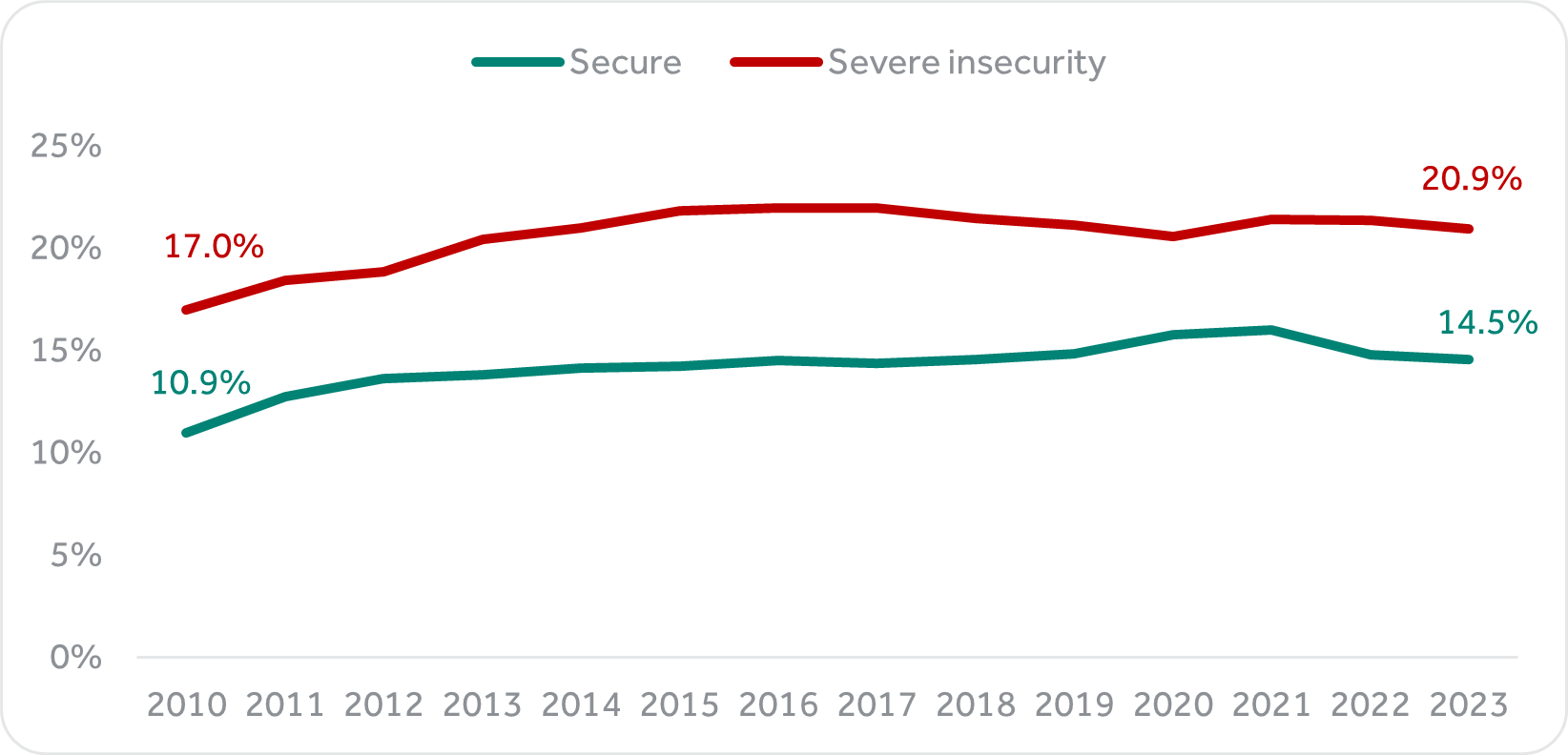Double Jeopardy: Insecurity at work and at home
Posted on
 © Adobe Stock 388494732
© Adobe Stock 388494732
In the midst of the cost of living crisis, private rents have risen by 15% since January 2022, exacerbating the financial insecurity felt by many living in the UK’s precarious private rental sector. In addition, many private renters face a lack of security of tenure, with shorthold tenancies and ‘no fault’ evictions commonplace.
This insecurity at home can be compounded by insecurity at work. Analysis by the Work Foundation at Lancaster University estimates that of the 6.8 million people (21.4%) in severely insecure work in 2023, 1.4 million were living in privately rented accommodation. This accounts for one in four workers (24.4%) in the private rented sector.
Figure 3: Percentage of workers in the private rental sector by employment insecurity

Source: Work Foundation calculations of Labour Force Survey microdata, 2010-2023 (April-June quarter)
Compared to people in secure employment, severely insecure workers are much more likely to be living in the private rented sector. Since records began in 2010, it appears there has been a steady increase in the number of workers living in private rented accommodation - up by 3.9 percentage points amongst those in severely insecure work to 20.9% in 2023 and by 3.6 percentage points for secure workers to 14.5%.
The likelihood that a severely insecure worker will live in privately rented accommodation is greater among workers who experience other forms of labour market disadvantages. Work Foundation analysis found that amongst severely insecure workers, nearly two in five Black and Asian workers live in privately rented accommodation (38% Black severely insecure workers / 37.5% of Asian severely insecure workers) compared to 17.3% of white severely insecure workers.
While those aged 25-35 – millennials – are the age group most likely to face insecure work while living in private rented accommodation (33.8%).
Bold policy ideas are required to tackle the structural failures of the UK’s housing market and private rented sector, including boosting housing supply (including affordable and social housing), increasing tenant security, and rent controls. It is crucial that Government also acts to increase access to secure, well-paid employment, which could also help in supporting people into more secure and affordable accommodation in the future.
Watch our Double Jeopardy event recording here.
Related Reports
Back to report listing




